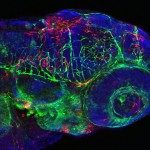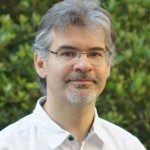Link to Pubmed [PMID] – 10330438
J. Exp. Med. 1999 May;189(10):1591-600
Primary T cell responses rely on the recruitment and proliferation of antigen-specific T cell precursors. The extent of expansion of each individual T cell clone may depend on (a) its frequency before immunization, (b) its proliferative capacity, and (c) the time at which it first encounters its cognate antigen. In this report, we have analyzed the relative contribution of each of these parameters to the shaping of immune repertoires in the T cell response specific for the epitope 170-179 derived from HLA-Cw3 and presented by Kd. By means of hemisplenectomy, we compared immune and naive repertoires in the same animal and found that the frequency of all expanded T cell clones was extremely low before immunization. In particular, the most expanded clones did not derive from high-frequency precursors. In addition, recruited T cells were found to proliferate at the same rate, irrespective of their T cell antigen receptor sequence. Finally, we showed that only T cells that encounter the antigen at early time points account for a significant part of the specific response. Therefore, the contribution of a T cell clone to the immune response is mostly determined by the time of its entry into the immune repertoire, i.e., the time of first cell division after antigen encounter.

